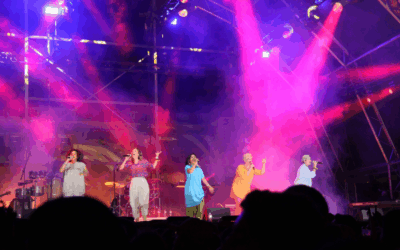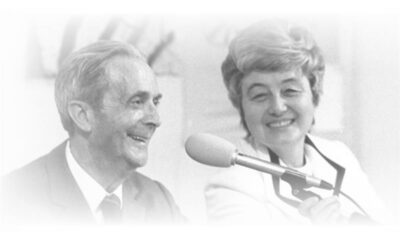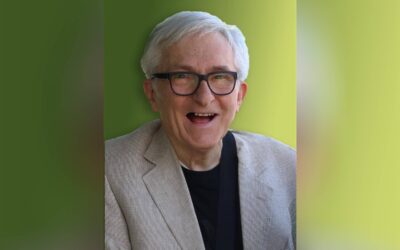“He gave up his life for his brother”. This was the title given by the newspapers to the tragic death of Fr. Nelson, and so it was indeed. He was the parish priest, the spiritual director of the seminary and chaplain of the hospital of Armenia, Colombia. His niece – who worked as his secretary – said, “He died putting into practice the phrase of the Gospel: to give up one’s life for one’s brothers. He always used to tell us that we had to live for others and not for ourselves.” The thieves broke into Fr. Nelson’s residence and locked him up in the bathroom so they could work undisturbed. A call was made to his married brother, saying that there was something strange happening at the parish. Upon arriving, Fr. Nelson’s brother entered through a side door, but all at once he found himself right in front of one of the thieves’ gun. When Nelson heard his brother’s voice, taking advantage of the confusion, he forced the bathroom door open and put himself between his brother and the thieves, saying, “Don’t hurt him!”. A thief pulled the trigger and hit Fr. Nelson right in the chest. This occurred in the morning of March 22. The day after, in spite of a very violent storm, the cathedral was packed with people mourning the death of the priest from whom each and everyone had received so much love. It was the kind of love which was the fruit of a profound maturity and constancy of will. The significant moments of Fr. Nelson’s life can be gleaned from the memories he himself referred to in an interview with Città Nuova (the Italian edition of New City), which took place when he was in Italy studying pastoral health care. He recounts, “We were seven in the family and our means of support came from father’s work as a farmer. We lived in extreme poverty, but our trust was in God. For this reason, we were happy to share whatever we had with others whose need was even greater. I will always remember the apple tree we had in our garden, whose delicious fruits we were forbidden to pick because they were reserved exclusively for the sick people in our parish.“ For Nelson, poverty lived in this evangelical way became a school of life. What proved to be more difficult, though, was how to face illness, which he was forced to face even as a child. “I was six years old when my limbs were paralysed for several months, due to a virus that had infected my central nervous system. Due to this illness I have been forced to undergo continuing therapy. Through the years, I was stricken with other illnesses and had gone through no less than four eye operations, so I’m quite familiar with medications, therapy, and hospital stays. But I was very young then, and did not understand the meaning of this suffering which would not allow me to live like other young people of my age, and I was quite scared.” Nelson got engaged, and was planning to have a family of his own, when he felt the calling to a more universal way of self-giving. At 21 years of age, he decided to become a priest. During his first years in the seminary, his health problems seemed to have disappeared, but when he began his first year of pastoral experience, his sickness reappeared, and he found himself in the hospital once again, paralysed. “The doctors assured me that I would recover,” Fr. Nelson explained, “but I felt immersed in a dark crisis; I saw my future collapsing.” It was right in this period of his life that, thanks to a priest-friend who lived putting the spirituality of the Focolare into practice, he was able to acquire a deeper understanding of Christ’s Passion. He experienced a true inner rebirth in recognising Him in each suffering – his own as well as that of others – and embracing it with love. “Every physical and moral suffering took on new meaning for me. It became a wellspring of unusual inner strength, of peace and even of joy! I had discovered the most precious of treasures, and even if I would not have become a priest, nothing was lacking to my becoming a fulfilled Christian.” From 1983 to 1993 he gave of himself generously for the spiritual life of the diocese: he was assistant parish priest in a large parish with 10,000 parishioners, he was hospital chaplain, and a professor of spiritual formation in the Major Seminary of Armenia. A major step in his life was when Nelson decided to take a course in pastoral health care at the Camillianum Institute in Rome. It was a choice made also in the desire of finding an answer to one basic question he had: how can one live through illness in a spiritually “healthy” way, and through death as a passage from this life to the next? “In our country the priests who had a preparation in this field were not many, and in my condition, my desire to serve my sick neighbours better helped me to face the unpredictable aspects that a two-year stay overseas implied.” In August 1993, Nelson was relatively better, so he started his studies in Rome. But that was not all: life together with an Argentinian and a Dutch priest was a chance for him to put the spirituality of unity – which had so attracted him in Colombia – into practice. It was a “refining” experience which particularly helped him in his work with AIDS patients. Fr. Nelson came to know many of them in this period, and with each one he built a rapport, sharing a word, an experience, sharing their suffering, offering a hand in helping to reach reconciliation with God. When Nelson returned to Colombia, according to his Bishop’s wishes, he occupied himself with pastoral health care on the diocesan level, but he also gave generously of himself beyond his job description. “Giving up one’s life” is something one cannot improvise, and just as Nelson was accustomed to doing in his many years of experience with the most varied kinds of people, he bade us good-bye with his last heroic act of love.
Place yourself at the service of others
Place yourself at the service of others




0 Comments